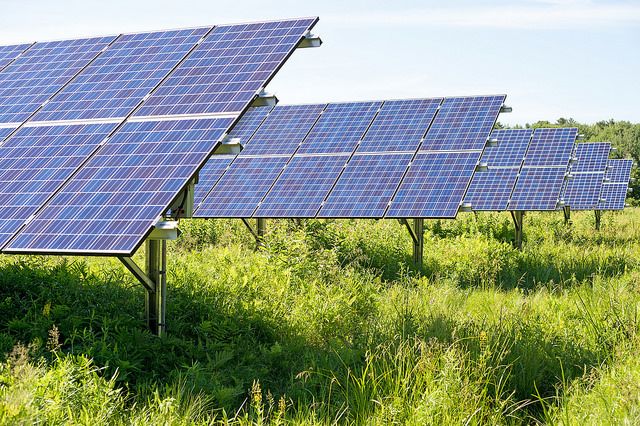November 9, 2018
Regulations Under Development for Renewable Energy Development on Farmlands
A law passed in 2017, “Taxation of Farm Forest and Open Space Land”, enables farms receiving tax relief through the Farm Forest and Open Space program to install renewable energy projects (solar and wind) on up to 20% of their farm without losing the tax protections on the remaining portion of the farm.
The RI Department of Environmental Management (RI DEM) is finalizing regulations to implement this law. Audubon joined with other partners and submitted comments on the draft regulations.
Eco RI News coverage of the recent hearing can be found here: Rules Near for Renewables on Farms and Open Space

In a letter submitted by Audubon Society of Rhode Island and several other environmental organizations, we have requested that RI DEM performs annual reviews of the conservation plans, which are required to receive the state farm and open space designation. | Image courtesy of U.S. Department of Energy via Flickr

















